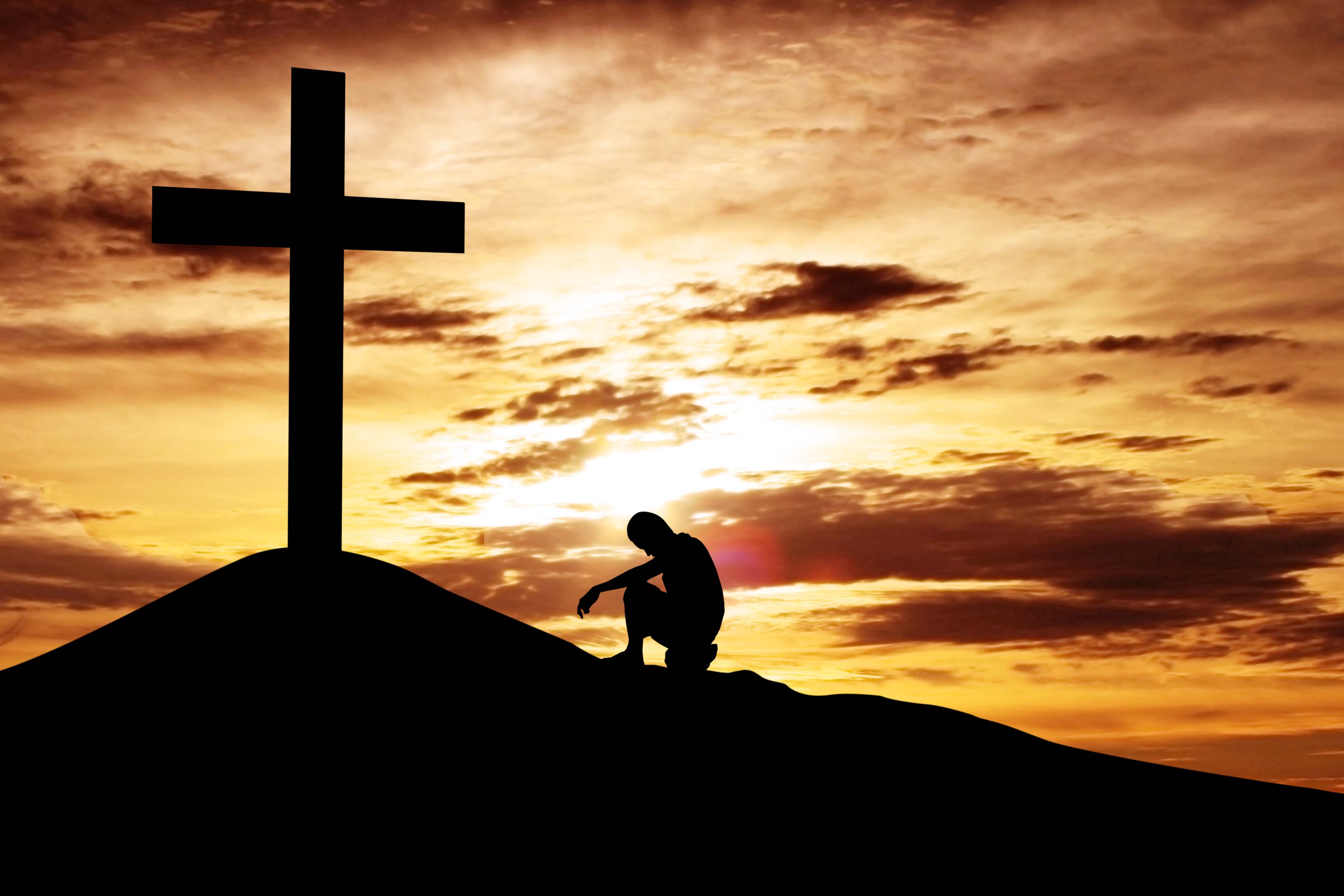Sanctification

The truth of sanctification is found both in the Old and New Testaments and the word always has the meaning of separation or a setting apart. In the Old Testament, the word is often used to things as well as persons. In the New Testament, it is almost always used of persons and when applied to believers, it has both a primary and secondary meaning. Many difficulties have arisen over sanctification because its secondary meaning has been made its only meaning by some Christians.
Many believe that sanctification is a process whereby believers are made more and more holy and pleasing to God, whereas its primary meaning is that by an act of God, believers have been set apart for Himself. Consequently, their growth in holiness becomes a necessity
Thus a sanctified person (or thing) is one set apart from ordinary uses to be God’s own possession and for His use and enjoyment. Therefore, sanctification is the opposite of profanation or defilement. The priest in Aaron’s day was not to “defile himself…to profane himself” (Lev. 21:4). The priests of the future millennial day are to “teach My people the difference between holy and profane” (Ezek. 44:23) - the common or polluted. Those things commonly used are the things that get polluted. The public common is a piece of land (like a park) that is open for public use. Rules must be made to keep it clean or it would soon become a rubbish-heap
In the primary sense, every believer has been set apart for God. This is an absolute fact. We may speak of it as positional sanctification. In the secondary sense, every believer is to be set apart for God. This is progressive sanctification. Our positional sanctification is an objective fact while our progressive sanctification is a subjective experience which must always follow and flow from the objective fact. Things will always become distorted in our minds if we allow experience to eclipse or overshadow the fact, as many do. Now let’s prove what we’ve been saying by looking at three facts.
- Non-living things - altars, laver, and vessels - were sanctified under the Law. These things couldn’t possibly change or increase in holiness. But they could be put in a separated position where they were completely devoted to the service of God.
- The Lord Jesus Himself was “sanctified and sent into the world” (Jn. 10:36). When leaving the world, He said, “I sanctify Myself” (Jn. 17:19). Now, there could be no subjective change in Him, no increase in holiness - no progressive sanctification. Devine and absolute holiness was ever His. But He could be set apart by the Father for His mission as Revealer and Redeemer and then be sent into this world. Also, when leaving this world to return to the world of the Father’s glory, Christ could set Himself apart in a new position as the pattern and power of the sanctification of His followers.
- We are told to “sanctify the Lord God in your hearts” (1 Pet. 3:15). Here too, the only possible sense of sanctify is to set apart, positionally. We are to set the Lord apart in out hearts in a unique position where He is to be exalted without rival.
Thus we first have the truth of absolute, positional sanctification which is ours by the act of God. If we don’t see this clearly, we will get a defective and perverted idea of practical and progressive sanctification since the one flows out of the other. Our expected practical sanctification is according to the character of our positional sanctification.
Sanctification is first mentioned in connection with creation when God sanctified the seventh day in which He rested (Gen. 2:3). The second mention is connected with redemption when God brought Israel out of Egypt. God said, “Sanctify unto Me all the firstborn” (Ex. 13:2). Those firstborn who had been redeemed by blood (at the Passover) were positionally set apart from God. As a result, a very special manner-of-life became them, or rather, became the Levites who later on were substituted for them (Num. 3:45, 8:5-19).
The picture or type seen in Exodus is very instructive. In chapter 12, Israel is sheltered from judgment by the blood of the Passover lamb which foreshadows the forgiveness and justification which reaches us by the Gospel. In chapter 15, Israel is brought completely out of Egypt, Pharoah’s power being broken. This illustrates salvation. Both chapters together picture redemption. Then in chapter 13, we get sanctification. The people who are justified by blood are set apart for God, and because He claims them for Himself, He will fight any rival claim. God refused Pharoah’s claim, destroyed Egypt’s power, delivered His people, and brought them to Himself. All their later history had to be governed by this fact.
In all this, God shows very plainly that when He intends to bless people, He sets them apart to Himself instead of allowing them to be common, polluted and profane. They are sanctified to Himself.
Man has been completely profaned by sin. His mind, his heart, his whole nature has been overrun with every kind of evil. So if grace sets itself to win him, he must be completely set apart for God by God - all or nothing.
We thus must lay hold of the great fact that we have been sanctified. Scripture is very plain and definite on this point. The Corinthians are a great example of this. Of all the Christians of the apostolic age mentioned in Scripture, they are the least marked by practical sanctification. Their behavior was open to much rebuke and they got it from the apostle Paul in very plain language. Yet, in his first epistle to them, he calls them saints (sanctified-ones) as “sanctified in Christ Jesus” (1:2). Later in chapter 6, after mentioning many of the sins that filled the heathen world, he said, “And such were some of you but… you are sanctified” (v. 11).
Nothing could be clearer than this. We do not become God’s sanctified people by attaining to a certain standard of practical holiness. We are God’s sanctified-ones and because of it, holiness (practical sanctification) is our duty. If we had to reach some level of holiness to become sanctified, it would be according to the principle of law. But God works according to the principle of grace.
Absolute sanctification reaches us in a two-fold way. First, it is by the work of Christ. “We are sanctified through the offering of the body of Jesus Christ once for all” (Heb. 10:10). “Jesus also, that He might sanctify the people with His own blood, suffered outside the gate” (Heb. 13:12). Believing in Him, we stand in the value of His offering and are thereby set apart for God just as completely as we are justified.
Secondly, we are sanctified by the Holy Spirit. Paul said, “God has from the beginning chosen you to salvation through sanctification of the (Holy) Spirit and belief of the truth” (2 Thess. 2:13). Paul also wrote, “Elect…through sanctification of the Spirit” (1 Pet. 1:2). These are the working of the Holy Spirit in our hearts which end in the new birth of Jn. 3:6, “that which is born of the Spirit is spirit.” Then, further, when the Gospel is received by faith, the Holy Spirit indwells the believer and seals him until the day of redemption. By that seal, the believer is marked out as belonging to God: he is sanctified (set apart) for Him.
Paul wrote, “Christ Jesus, Who of God is made unto us… sanctification” (1 Cor. 1:30). We are set apart in Him since it was His blood that was shed for us. Also, we have received the Holy Spirit as the fruit of His (Christ’s) work. So, we have been “sanctified…in the name of the Lord Jesus and by the Spirit of our God” (1 Cor. 6:11).
When we really understand that we are absolutely sanctified, we then are prepared to face our responsibilities as to practical sanctification, which responsibilities are based on our absolute sanctification. One of the Lord’s own requests for His own to the Father was, “Sanctify them through They truth: Thy Word is truth” (Jn. 17:17). Hence, we must know and carefully listen to the Word of God because the more we really know of it, the more its sanctifying power is exerted in our lives.
Paul said, “This is the will of God, even your sanctification” (1 Thess. 4:3). This shows that practical sanctification is not optional - something to be pursued after or avoided at one’s own fancy. Moreover, God Himself works it out for the saints and it is all-embracing in its scope as seen in Paul’s prayer for the Thessalonians, “The very God of peace sanctify you wholly (completely)” (1 Thess. 5:23). Everything about us is to come under the sanctifying touch of the God of peace.
Then there is our side of the matter. There are measures that we are to take to promote our practical sanctification. We are to shun certain things, to depart from iniquity, to purge ourselves from vessels to dishonor - those who teach serious error. Only then will we be vessels “unto honor, sanctified and fit (prepared and approved) for the Master’s use” (2 Tim. 2:16-21)
This is how the work of sanctification progresses. Indeed, it is the great work which the Lord is carrying on with His Church, His object being to “sanctify and cleanse it with the washing of water by the Word” (Eph. 5:26). This work of sanctification and cleansing is taking place today in all those individuals who compose His Church - all believers.
When we are exhorted to be holy in Scripture, it is the same thing as being exhorted, to be (progressively) sanctified. Holiness and sanctification are translations of the same Greek word. So holiness is both absolute and progressive. For instance, we read, “wherefore, holy brethren, partakers of the heavenly calling” (Heb. 3:1). These were not some superior breed of Christians who were far advanced in practical holiness but simply people who were set apart for God as partakers of the heavenly calling. In fact, Heb. 5:11-14 show that these believers weren’t very far advanced at all in practical holiness. Further, in Heb. 12:14, they were exhorted to “follow peace with all men, and holiness.” Evidently they weren’t doing this. These holy believers were to follow holiness. Peter tells us the same thing when he says in 1 Pet. 1:15 and 2:9, “Be you holy” to the same people to who he says, “You are…a holy nation.”
Thus, because we are holy, we are to be holy. The holiness which should characterize us day by day is according to the holiness which is ours by the call of God.
The New Testament often calls believers saints. Now, a saint is popularly though of as an extremely holy person. The Roman Catholic Church makes saints by a long process called canonization. If we told a Roman Catholic that we were going to visit the saints, they would think that we were going to some local shrine to get help from those canonized dead people. But a saint is not a person of unusual godliness who after death is entitled to be represented or pictured with a halo around his or her head. A saint is the ordinary simple believer who has been set apart for God by the blood of Christ and by the possession of the Holy Spirit. Since every true believer is a saint, we are all responsible to pursue holiness. Perhaps one reason why the Roman Catholic idea lingers on is because it leads people to feel that personal holiness doesn’t concern them but only concerns a few special ones. Those few special ones can pursue holiness while the rest can live easygoing lives in the world. Let us carefully maintain the Scriptural thought.
Positional (absolute)-sanctification and justification go together. In 1 Cor. 6:11 where the work wrought “in the name of the Lord Jesus and by the Spirit of our God” is in question, sanctification is mentioned even before justificiation. The Corinthians had been cleansed and set apart for God on the same ground and by the same means as they had been justified - and so have we. Now, Scripture is plain that we are “justified by faith” (Rom. 5:1) but it doesn’t speak of sanctification by faith. However, just as we know our justification by faith and not by feelings, so too, we know that we have been set apart for God by faith and not by feelings. God declares us to be justified as believers in Jesus and we believe Him. He also declares us to be sanctified to Himself as believers in Jesus and again we believe Him.
Practical sanctification is another question. It should progressively increase as long as we are on this earth. We are to be “perfecting holiness in the fear of God” (2 Cor. 7:1). Paul prayed that the Thessalonians might be sanctified “unto the coming of our Lord Jesus Christ” (1 Thess. 3:13, 5:23). Practical holiness is not apart from faith, but to speak of holiness by faith (as though faith alone produced it) is to shut out our practical Christian living which must not be executed.
Practical sanctification is presented in Rom. 6:22 as the fruit of our being freed from the slavery of sin. Further, it is the “law of the Spirit of life in Jesus” which makes us “free from the law of sin and death” (Rom. 8:2). The more we are under the law (control) of the Holy Spirit, the more we enjoy freedom from the control of sin. Thus, the daily control of the Holt Spirit in our lives is very important to real practical sanctification.
In His prayer for His own, the Lord said, “Sanctify them through Thy truth; Thy Word is truth” (Jn. 17:17). The Holy Spirit and the Word of God are always closely connected such as in creation (Gen. 1), in new birth (Jn. 3), and here in the matter of practical sanctification. So we can speak of holiness by the Word of truth as well as by the Spirit. We can also speak of holiness by love according to 1 Thess. 3:12-13. Our hearts are established in holiness as our love increases.
There is also a holiness by separation from all that is unclean, coupled with cleansing from all filthiness of flesh and spirit as seen in 2 Cor. 6:14-7:1 and in 2 Tim. 2:16-22. Holiness is thus practically produced in us by these above four practical means, in addition to faith.
Since 1 Thess. 5:23 speak of being wholly sanctified, some claim to have complete freedom from the presence of sin. But as we have seen, wholly refers to the whole man - his spirit and soul and body. God doesn’t just do a half-work. Its sanctifying influence reaches every part of us and is carried on until the Lord’s coming. When He comes, the sanctification of the whole man will be completed and perfect but not before.
As long as we live in these bodies which were derived from Adam, sin will still be in us. Yet the more we experience God’s sanctifying work, the less we come under sin’s power. There is no excuse for the believer to sin since he has available ample power to preserve him. Yet we all do sin. But we should all confess it unless our sense of what is sin is badly blunted or unless we are simply deceiving ourselves.
The normal and proper Christian life is one of practical holiness. But those who are most holy don’t brag about it or simply live to themselves. The desire of their lives and the theme of their tongues is CHRIST.





